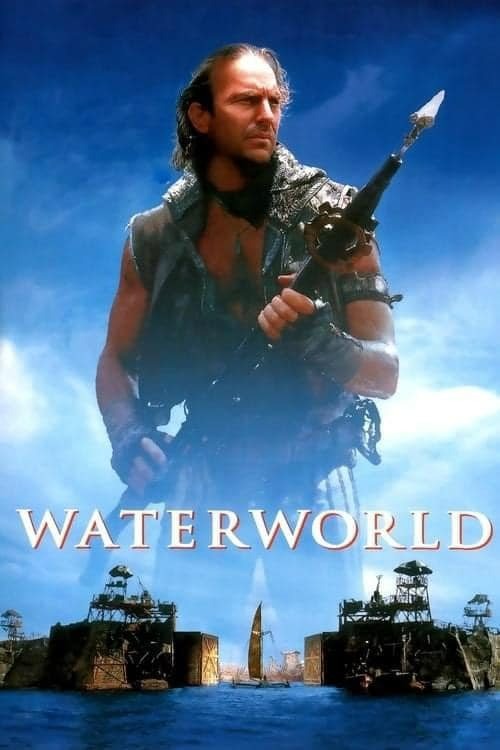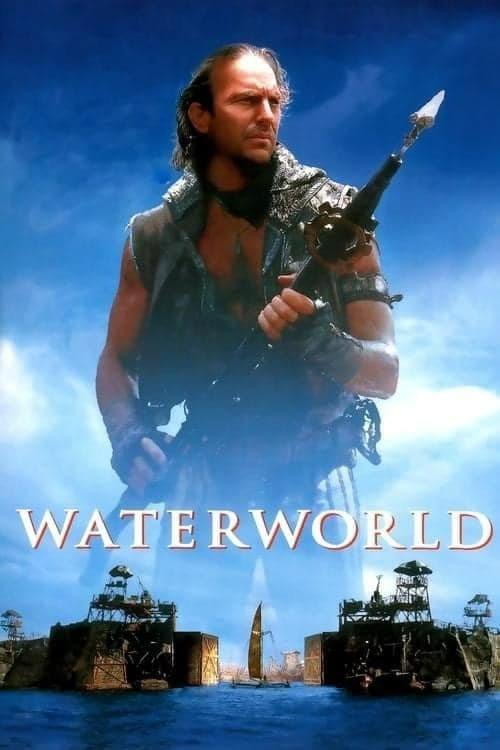
Released in 1995, Waterworld is a post-apocalyptic science fiction film directed by Kevin Reynolds and starring Kevin Costner, Dennis Hopper, and Jeanne Tripplehorn. Despite its initial mixed reviews and massive production costs, the film has since developed a cult following and is recognized for its ambitious world-building and groundbreaking visuals.
Synopsis
Set in a future where the polar ice caps have melted, Earth has been submerged underwater, leaving the remnants of humanity scattered across a vast ocean. The film follows a lone drifter known as “The Mariner” (Kevin Costner), a genetically enhanced human with the ability to breathe underwater. His journey leads him to discover a young girl named Enola (Tina Majorino), who possesses a map to the mythical “Dryland,” a place of salvation believed to be the last habitable land on Earth.
As The Mariner attempts to protect Enola from the villainous Deacon (Dennis Hopper) and his band of pirates, the film explores themes of survival, environmental degradation, and the resilience of the human spirit. The struggle for water and land serves as a backdrop for thrilling action sequences and elaborate set pieces, including high-octane boat chases and intense confrontations.
Production Challenges
Waterworld was notable for its high production costs, which exceeded $175 million, making it one of the most expensive films ever made at the time. The ambitious project faced numerous challenges, including harsh weather conditions and extensive delays during filming. Despite these obstacles, the film pushed the boundaries of special effects and practical stunts, with elaborate set designs and innovative watercraft.

Cultural Impact
Upon its release, Waterworld was criticized for its lengthy runtime and perceived lack of coherent storytelling. However, over the years, it has been re-evaluated and appreciated for its imaginative take on a future shaped by climate change. The film’s portrayal of a world entirely covered by water has resonated with audiences, prompting discussions about environmental responsibility and sustainability.
The movie has also inspired various adaptations, including a live-action stunt show at Universal Studios and a video game. Its legacy continues to influence filmmakers and remains a point of reference in discussions about dystopian narratives.
Conclusion
Waterworld may have struggled at the box office during its initial run, but it has since secured its place in cinematic history. Its ambitious vision, unique setting, and compelling themes make it a noteworthy entry in the science fiction genre. As audiences grapple with the realities of climate change, Waterworld serves as a cautionary tale that remains relevant today, reminding us of the importance of preserving our planet for future generations.
